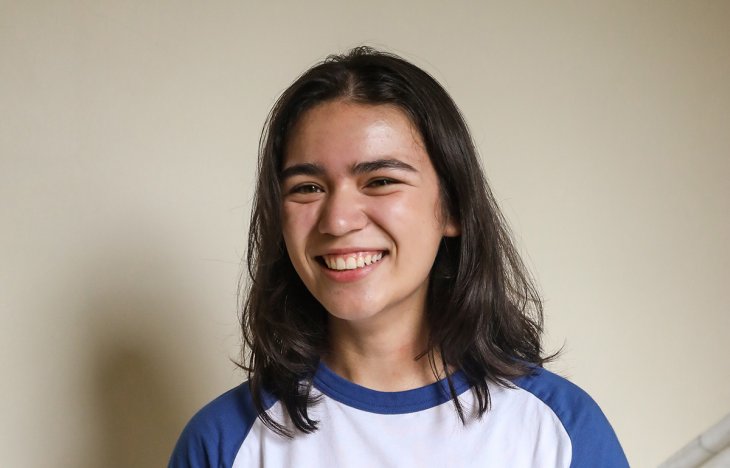Isabella Vesely

"I found things I simply loved doing, and to me, that's success."
By fourth grade, Isabella Vesely ’23 was focused on science. The Wisconsinite started robotics teams and later “stumbled upon” weekly lectures at the local university’s planetarium, where she took notes eagerly, surrounded by college students. By the end of middle school, she was two years ahead of her class in math, and a teacher recommended that she apply to Exeter.
Delighted as a prep to be able to choose classes in any branch of science, Vesely quickly realized her favorite was physics, for its expansive focus on everything, including particles and galaxy clusters. She barreled through Exeter’s entire physics curriculum. “Physics really helped me have this analytical mind, always questioning.”
"Exeter pushed me to think critically and redefine my definition of success. In taking on challenging classes and rigorous clubs, I learned to stop directly comparing myself to everyone — especially to those who came from different backgrounds and experience levels. Instead, I learned from them and built benchmarks that reward my own personal exploration. I found things I simply loved doing, and to me, that's success."
Last summer, Vesely participated in the QuarkNet Summer Research Program, a paid virtual opportunity for high school students. It is supported by the Fermi National Accelerator Laboratory, or Fermilab, which is funded by the U.S. Department of Energy and is home to the world’s second-largest particle accelerator.
Vesely and a partner were assigned to imaging galaxy clusters across millimeter, optical and X-ray wavelength bands. Those were combined with the rest of their research group’s findings to create hyperfast, analytic model-based simulations of galaxy clusters to determine their mass through an artificial intelligence neural network. That kind of information, Vesely says, along with research in dark matter and dark energy, will someday play a role in developing as-yet-unrealized uses here on Earth.
“The base of physics is really just asking questions about what’s going on around us,” she says. “Once you find a discovery and know more about the world, you can have meaningful applications. The first step is experimenting and observing, using our eyes or, now in modern physics, computers, simulations, neural networks and AI.”
Vesely returned in the fall for her senior year and renewed her passion for robotics. Serving as team captain of Team Vertex, the Exeter Robotics Club's top team, she led the Academy to their best showing at the World Championships, collecting a batch of awards. By then, Vesely was in Washington, D.C., taking part in Exeter's renowned congressional internship program. A busy senior year — and a full Exeter journey — to be sure. She'll continue her studies in the fall at MIT.
"The core of my experience boils down to my method of learning: instead of only learning and studying in classrooms, I've had the joy of learning both with and from peers. From learning why helicopters don't have counter tail rotors to why we can't connect black and red wires, Exeter made learning fun. Exeter really is all about the people, and I can easily call my friends my second family away from home."
Editor's note: This profile first appeared in the fall 2022 issue of The Exeter Bulletin. It was updated in May 2023.
